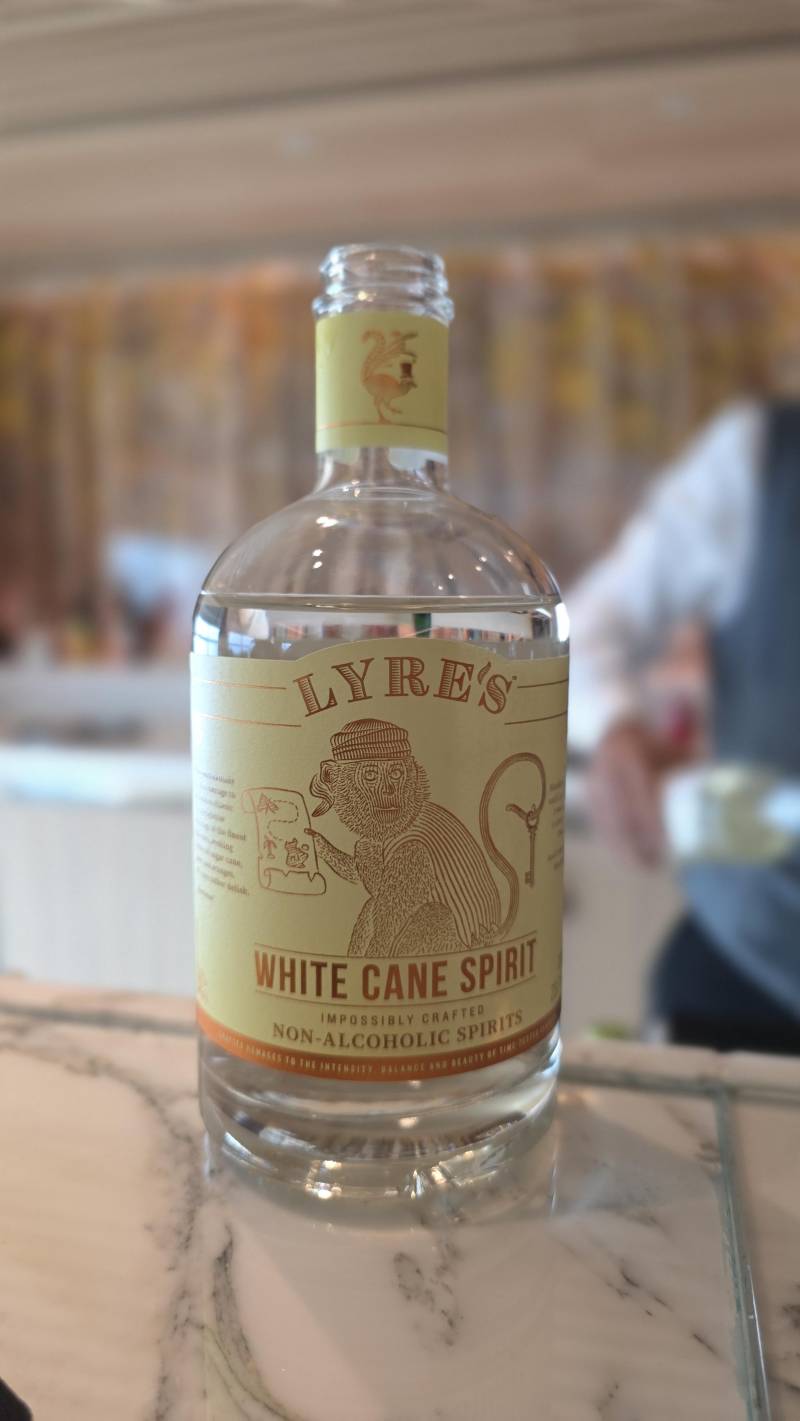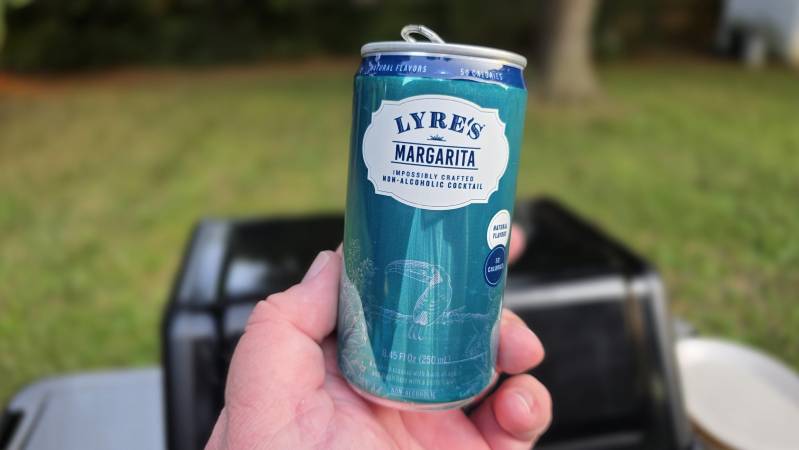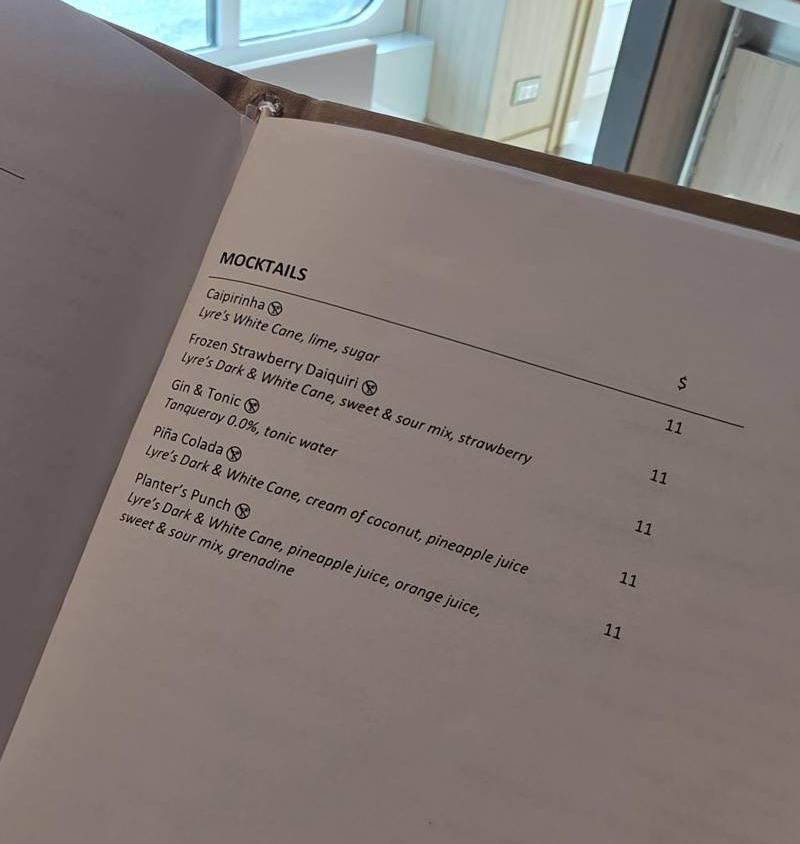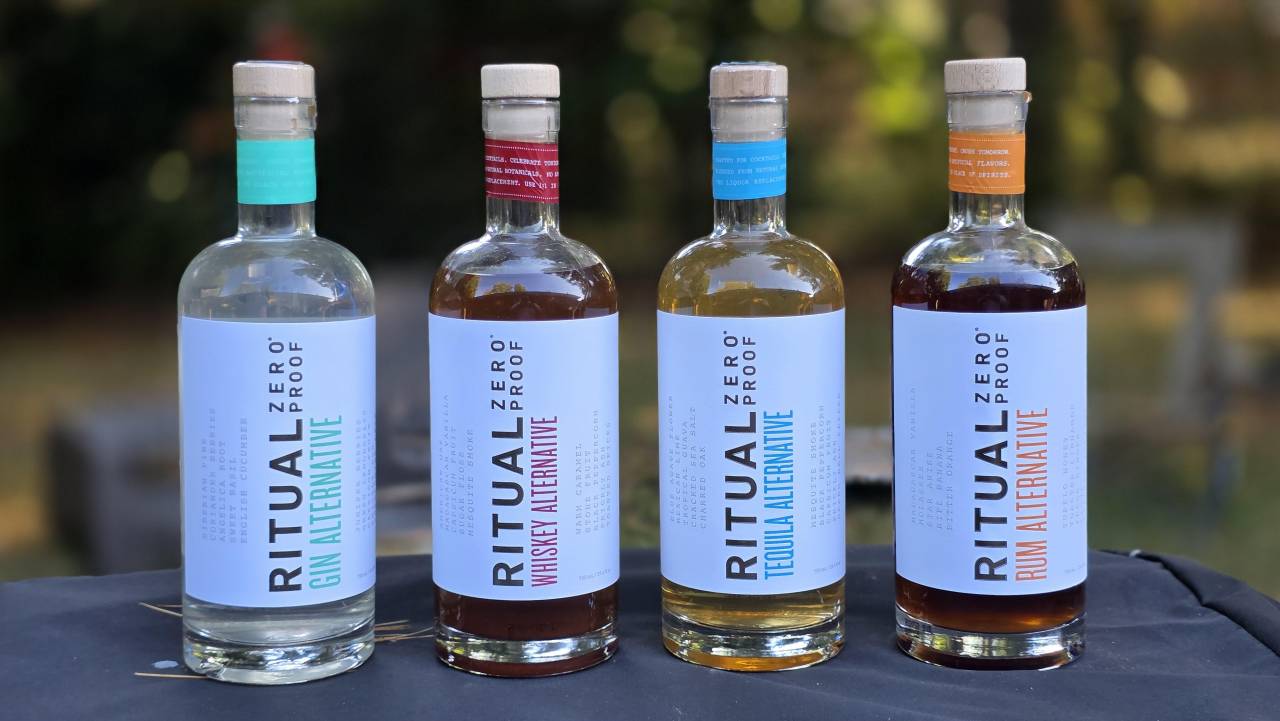I strongly support non-alcoholic and low alcohol cocktails - no these aren't the same. What I've struggled with though is two primary challenges. The first is that part of the enjoyment of spirits is the feeling of relaxation and indeed a bit of inebriation as the alcohol erodes barriers that govern our behaviors. NA drinks don't produce pharmacological intoxication; their value is flavor, ritual, and social inclusion. For me, I also really appreciate the heritage and authenticity that goes into craft spirits - whether that's rum, mezcal, whiskey or even more industrial products like vodka, unfortunately that does not really exist here in the same way - but rather introduces a modern, science-forward experience that frankly is pretty impressive on it's own ... but just not the same romantic notion of cowboys, kings, and outlaws behind some of our favorite alcoholic spirits.
With that being said though, non-alcoholic drinks have a place in my cabinet since there are many times when I just don't need or want a buzz. There are friends and family like my father-in-law who can't have alcohol because of complications with medicines and other health reasons. However, sometimes he just wants to enjoy a drink that brings him happiness and so non-alcoholic cocktails are a great innovation.
What Do You Call Your "Guys Trips"?
- Professional flexibility allows you to maintain sharp performance during business dinners, networking events, or work colleagues gatherings without appearing antisocial
- Health considerations support friends and family dealing with medication interactions, health conditions, or recovery while maintaining social connection
- Quality control over your evening lets you enjoy the cocktail experience during guys night without compromising next-day productivity
- Better alternatives to sugary mocktails provide adult-level complexity that pairs well with dining and social experiences
- Expanded hosting options allow you to offer quality beverages to guests with varying alcohol preferences without maintaining separate bar programs
Important Labeling Note: In the U.S., "non-alcoholic" means less than 0.5% ABV (which must be stated on the label), while "alcohol-free" indicates 0.0% ABV. This distinction matters for people in recovery, those with medical conditions, or anyone avoiding alcohol completely. Many popular NA spirits contain trace alcohol up to 0.5% ABV.

The Reality Check on Non-Alcoholic Spirits
Unfortunately, from my perspective, none of the "alternative spirits" truly tastes good neat. It's like Beyond Burger - enjoyable in the right context but not the same as actual meat. That is exactly how I feel about both Ritual and Lyre's spirits alternatives. Served "neat" they are just not comparable to the experience of sipping bourbon or rum by itself. However, as part of a cocktail such as a mojito or whiskey sour for instance they both tasted good.
The key understanding here is expectation management. These products excel as cocktail components rather than standalone sipping spirits. The complexity of mixed drinks - citrus, sweeteners, bitters, and other ingredients - creates an environment where NA spirits can contribute meaningful flavor without bearing the entire weight of the drinking experience.
Lyre's:
Lyre's has established itself as the world's most awarded non-alcoholic spirits brand through a methodical approach to flavor replication. Their production method builds flavors by blending natural essences, extracts, and distillates rather than starting with alcohol and removing it.
Their flavour architect David Murphy approaches each product like wine blending, experimenting with different percentages of flavor components to achieve balance. Rather than starting with alcohol and removing it, Lyre's sources the finest natural essences, extracts, and distillates from around the globe, then carefully combines these components with a proprietary non-alcoholic base liquid.
The brand incorporates innovative techniques to replicate alcohol's mouthfeel, including capsaicin and capsicum extracts that add length and carry to the palate while imitating the warmth of alcohol. This attention to the physical sensation of drinking - not just flavor - sets Lyre's apart in the category.
For me personally though, the canned cocktail route is the way to go. Lyre's has a fantastic margarita and the gin and tonic tasted great too. I also had the opportunity to try Lyre's white rum and dark rum on a Great Lakes cruise recently, and they worked great when mixed into a cocktail by a trained bartender who understands how to use them properly.
Ritual:
Ritual Zero Proof takes a different but equally sophisticated approach, focusing intensely on botanical distillation and what they call "heat engineering." After experimenting with hundres of recipes, Ritual developed a process that creates a satisfying glow meant to serve as the spine of a proper cocktail.
Ritual individually distills botanicals - from Siberian pine to Mexican blue agave to American oak - to lock in their purest flavor, then carefully blends to create sophisticated profiles. The Chicago-based company microfilters every batch and date stamps bottles for freshness, treating their products with the same quality control standards as premium spirits. Importantly, Ritual explicitly states they don't recommend drinking their products neat - they're designed specifically for cocktails.

The Non-Alcoholic Canned Cocktail Revolution
The ready-to-drink category represents perhaps the most successful application of non-alcoholic technology. Here, the complexities of balancing multiple ingredients work in favor of NA spirits, creating finished products that deliver satisfaction without requiring bartending expertise.
For sober bachelor parties or Colorado guys trips where you need to remain focused while skiing, hiking, rafting etc, these canned options provide the ritual of raising a glass while maintaining clarity for outdoor adventures.
The success of canned NA cocktails lies in their complete formulation - each ingredient is precisely blended to create a balanced final product rather than expecting consumers to achieve that balance at home with unfamiliar ingredients. Plus since it doesn't involve glass they are very compatible with enjoying by the pool or on the beach.
The Science Behind NA Spirit Production
Creating non-alcoholic spirits requires sophisticated production methods that extract and preserve complex flavors without relying on alcohol as a carrier and preservative. Understanding these methods helps explain both the possibilities and limitations of current products.
Spinning Cone Column Dealcoholization
The spinning cone column represents the most advanced method for removing alcohol while preserving flavor compounds. This technology uses vacuum distillation with rotating conical vanes that create thin liquid films, allowing gentle separation of alcohol from flavor components at low temperatures.
Originally developed for wine dealcoholization, spinning cone technology operates in two stages - first extracting delicate aroma compounds, then removing alcohol, before recombining the aromatics with the dealcoholized base. The process minimizes heat exposure, preserving volatile compounds that contribute to overall aroma and taste.
Companies like Spiritless use reverse distillation processes to create their Kentucky 74 bourbon alternative, starting with a full-proof spirit and removing alcohol through this controlled method. The result maintains more authentic flavor compounds compared to synthetic alternatives.
Synthetic Blends and Natural Essence Combinations
Many leading brands, including Lyre's and Ritual, create their products by blending natural essences and extracts rather than starting with alcoholic spirits. This approach offers greater control over the final flavor profile and avoids the complications of alcohol removal.
The process involves sourcing concentrated flavor compounds from botanical suppliers worldwide, then combining these essences with base liquids designed to provide appropriate mouthfeel and stability. Advanced food science techniques allow formulators to recreate complex flavor interactions that normally occur during fermentation and aging.
Botanical Extraction and Distillation Methods
Pure botanical approaches involve extracting flavors directly from herbs, spices, and other plant materials without ever introducing alcohol into the production process. Methods include steam distillation, vacuum extraction, cold pressing, and maceration in food-grade solvents.
Steam distillation captures essential oils and aromatic compounds by passing steam through botanical materials, then condensing the resulting vapor to concentrate flavors. Vacuum distillation operates at lower temperatures, preserving delicate compounds that might be damaged by traditional heat-based extraction.

Adapting Classic Cocktail Recipes for Non-Alcoholic Spirits
Converting traditional cocktail recipes to work with spirit alternatives requires understanding how NA spirits behave differently from their alcoholic counterparts in mixed drinks. We've based the following tips on professional bartender recommendations and our own testing so that you can maximize your own experience when creating non-alcoholic cocktails on your next sober guys trip.
Essential adaptation techniques for home mixologists:
- Adjust acidity to taste - Non-alcoholic spirits lack alcohol's body and bite, so adding extra citrus or acid-adjusted juices helps restore balance without over-sweetening the final cocktail.
- Add texture with simple syrup or glycerin - Since alcohol contributes body and mouthfeel, incorporating an extra quarter-ounce of simple syrup or a few drops of food-grade glycerin recreates the weight missing from NA versions.
- Build cocktails rather than spirit-forward drinks - Formats like Collins, Mules, Spritzers, and Sours work better than Manhattans or Negronis because multiple mixers (citrus, soda, ginger beer) support the NA spirit rather than exposing its limitations.
- Use alcohol-free bitters carefully - Traditional cocktail bitters contain high alcohol content, so consider alcohol-free alternatives like All The Bitter, or understand that a few dashes of regular bitters add trace alcohol that may not be appropriate for everyone.
- Start with proven recipes - Mojitos, Moscow Mules, and Margaritas translate better than Old Fashioneds or Sazeracs because the original recipes already rely heavily on mixers that complement rather than compete with the base spirit.
I look forward to more conversation evolving around how to make non-alcoholic cocktails taste great since this is ultimately a subject that more and more men will be exploring over the next months and years. Non-alcoholic cocktails and reducing alcohol consumption is clearly a long-term trend.

Understanding Quality and Expectations
The non-alcoholic spirits category continues evolving rapidly, with new production techniques and flavor innovations appearing regularly. However, realistic expectations remain crucial for the appreciation and appropriate use of these products.
Premium NA spirits work best as components in complex cocktails where multiple ingredients contribute to the overall experience. Their success depends on understanding their role as flavor contributors rather than direct alcohol replacements. The most successful applications occur when bartenders or home mixologists treat them as specialized ingredients with unique properties rather than attempting one-to-one substitutions.
Non-alcoholic cocktails also serve specific lifestyle preferences - they're particularly valuable for folks who prefer to focus on the experience from cannabis consumption but still enjoy the ritual and social aspects of cocktails when hanging out on a guys night in. The combination allows for controlled experiences while maintaining the sophisticated drinking culture many people appreciate.
Quality varies significantly across brands and production methods, with higher-end products generally offering more sophisticated flavor development and better stability. Price points reflect the complexity of production and quality of source materials, similar to premium spirits.
Non-Alcoholic Spirits in Context: What Works and What Doesn't
Non-alcoholic spirits represent a practical solution for specific drinking situations rather than universal alcohol replacements. The category is experiencing significant growth, with the U.S. no-alcohol market forecast to grow 18% annually through 2028, driven partly by the popularity of ready-to-drink options that eliminate mixing guesswork.
Understanding their strengths - complex flavor contribution in mixed drinks, social inclusion without impairment, and professional flexibility - helps identify when they add genuine value to the drinking experience. The technology continues advancing, with new extraction methods and flavor innovations appearing regularly as major beverage companies invest in the category's long-term potential.
However, the fundamental limitation remains - these products cannot replicate the complete sensory and psychological experience of alcohol consumption. Their value lies in providing quality alternatives when alcohol isn't desired or appropriate, not in being perfect substitutes.
For anyone who appreciates cocktail culture but needs alcohol-free options, today's NA spirits offer unprecedented variety and quality. The key is approaching them with appropriate expectations and using them in applications where they can truly shine - as components in well-crafted mixed drinks rather than neat sipping experiences.
